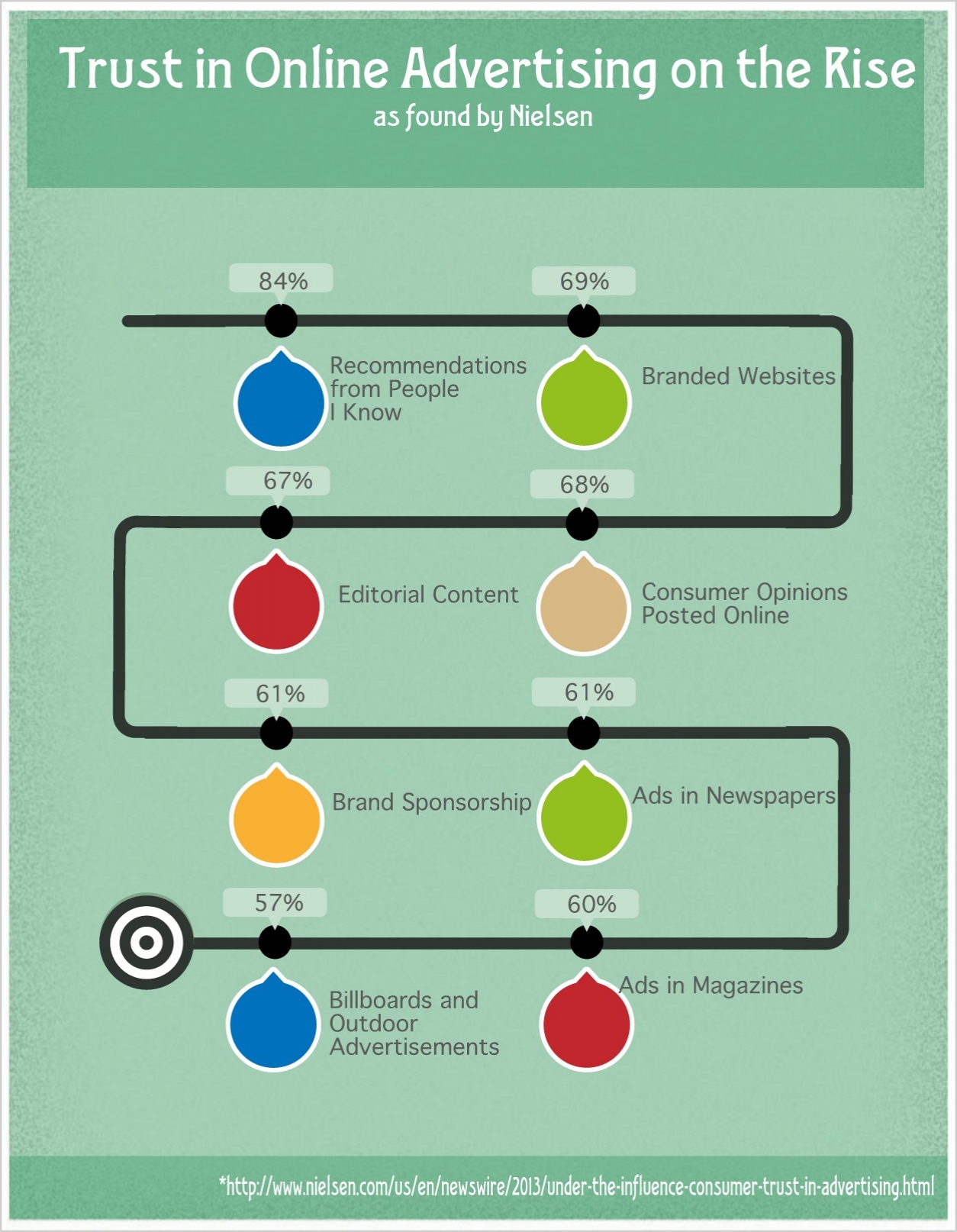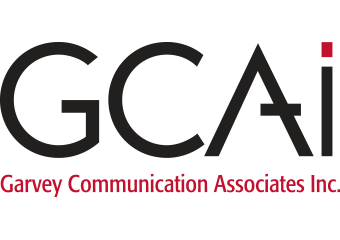Believe it or Not: Trust in Online Advertising on the Rise
Online advertising has TV, radio and print ads beat. Beat in responsiveness? Timeliness? Accessibility? Volume? Reach? Yes to all the above, but there is another attribute which consumers rank online advertising higher in than traditional ad mediums, and it may surprise you: Trust.
 Recently Nielsen released a study about trust in advertising. The study found that the most trustworthy source of advertising, second only to “recommendations from people I know,” is branded websites. It seems that consumers are increasingly turning to the internet for reliable product information. Clearly, in an increasingly digital age, consumers are becoming more confident in the information that advertisers are relaying online. On #GCAiPlanet, we’ve been preaching the virtues of Online Advertising for years. Here’s what we think is driving the trends found by Nielsen:
Recently Nielsen released a study about trust in advertising. The study found that the most trustworthy source of advertising, second only to “recommendations from people I know,” is branded websites. It seems that consumers are increasingly turning to the internet for reliable product information. Clearly, in an increasingly digital age, consumers are becoming more confident in the information that advertisers are relaying online. On #GCAiPlanet, we’ve been preaching the virtues of Online Advertising for years. Here’s what we think is driving the trends found by Nielsen:
Branded websites are trusted by 69% of respondents, up 9% since 2007. We think that there are several factors in play here. For one thing, major brands all have meticulously maintained, visually appealing websites which set them apart from some of the seedier, possibly untrustworthy vendors. Digital consumers today have an understanding of what sets apart the legitimate websites built by trusted brands from the knockoff hucksters. Also, due to the fact that branded websites are more than likely to be actively sought out by customers who are familiar with the brand and intend to make a purchase, trust has probably already been established.
Text ads on mobile phones are far and away the least trusted source of advertising according to Nielsen respondents, despite having risen a whopping 19% since 2007. In our opinion, the problem is that these ads are seen as an interruption. Like those that pop up in mobile games or apps like Pandora, ads on mobile disrupt the user experience and are perceived as an annoyance rather than a trustworthy advertisement.
Naturally, personal opinions generally have a high amount of trust associated with them, including “recommendations from people I know,” which rose 6% since 2007. Consumer opinions posted online also grew by 7%. This would include opinions found in places such as comment sections in digital retail, the kind that made Amazon.com a trustworthy e-commerce site, which provide a forum for users to post positive OR negative reviews and are typically a reputable source of feedback.
In a digital world, trust in online advertising has finally caught up with, and in some cases, surpassed traditional advertising. With consumers having an increased presence and a greater understanding of the online community, we believe that this trust will continue to rise. Do you agree with our reasoning behind these changes? Take a look at this table from MediaPost.com, and let us know what you think may have happened since 2007.
If you have suggestions for future Digital Marketing News posts, please feel free to email me. – John




